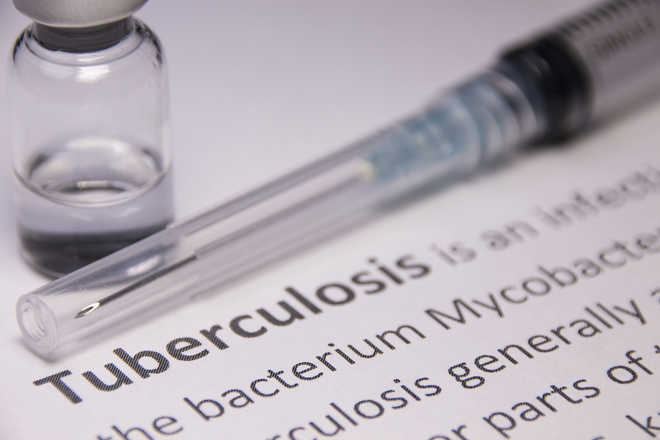
Only 13 per cent of the 1.3 million eligible children received preventive treatment in 2016.
New Delhi
The World Health Organisation (WHO), in its latest set of guidelines for combating tuberculosis, has recommended scaling up access to testing and treatment for the disease, especially among groups who are at risk, such as children and people with HIV.
The recommendations also include two new shorter treatment regimens for latent TB infection (LTBI).
The move is aimed at expanding access to testing and care for people with LTBI as they may develop active tuberculosis in the future if they do not receive appropriate treatment.
The global health body said health practitioners have to prioritise testing and treatment of people living with HIV and children under the age of five who have been in contact with people who have TB.
"WHO has now identified HIV-negative children aged more than or equal to five years, adolescents and adults who are contacts of TB patients, as well as contacts of patients with multi-drug-resistant TB (MDR-TB), as additional high-risk groups," the global health body said.
It has recommended scaled-up testing for latent TB infection in both high and low TB-burden countries.
According to WHO guidelines, a tuberculin skin test or interferon-gamma release assay can be used to test for latent TB infection and active TB disease should always be ruled out before prescribing preventive treatment.
About the two new shorter treatment regimens for latent TB infection, WHO said, "Rifapentine and isoniazid weekly for three months may be offered as an alternative to six months of isoniazid monotherapy as preventive treatment for both adults and children."
"Rifampicin plus isoniazid daily for three months should be offered as an alternative to six months of isoniazid monotherapy as preventive treatment for children and adolescents aged less 15 years. These shorter regimens will help patients adhere to their treatment and complete it," the world health body said.
It is also releasing a mobile application to support programmatic management of latent TB infection.
Dr Tereza Kasaeva, the director of WHO's Global TB Programme said, "The new guidelines will help countries catalyse TB prevention and contribute to end the tuberculosis epidemic. Making sure everyone can obtain the treatment they need to prevent latent TB developing into active TB, will save lives and reduce suffering."
Scale-up of treatment to prevent has been slow and only 12 of the 30 countries with a high burden of HIV-associated TB, reported provision of tuberculosis preventive treatment among people living with HIV, said Dr Haileyesus Getahun, Coordinator for TB/HIV and community engagement, WHO Global TB Programme.
Only 13 per cent of the 1.3 million eligible children received preventive treatment in 2016, Dr Getahun said.
According to a WHO report last year, India topped the list of seven countries, accounting for 64 per cent of the 10.4 million new tuberculosis cases worldwide in 2016.
India has last year pledged its commitment to eliminate tuberculosis by 2025, five years ahead of the global goal to reduce the number of such deaths by 90 per cent by 2030.
“We hope the new guidelines will disrupt the status quo in many countries and leapfrog global implementation of TB prevention efforts,” Dr Getahun said.
It would also contribute to global and national responses in finding and reaching those TB patients not in care, through systematic screening and testing.
The guidelines are to be used primarily in national TB and HIV control programmes, or their equivalents in ministries of health, and for other policy-makers working on TB and HIV and infectious diseases, WHO said. PTI



























